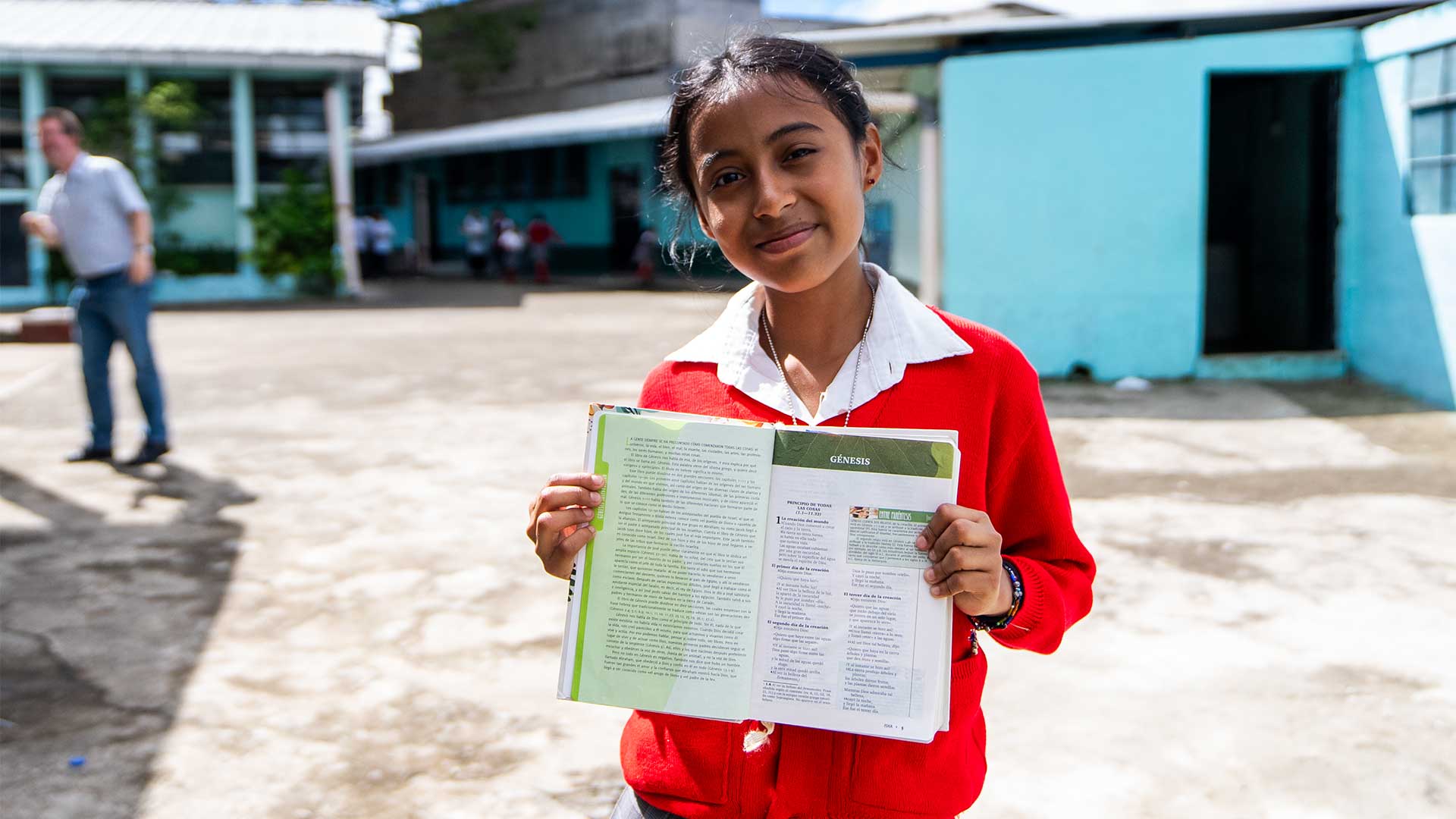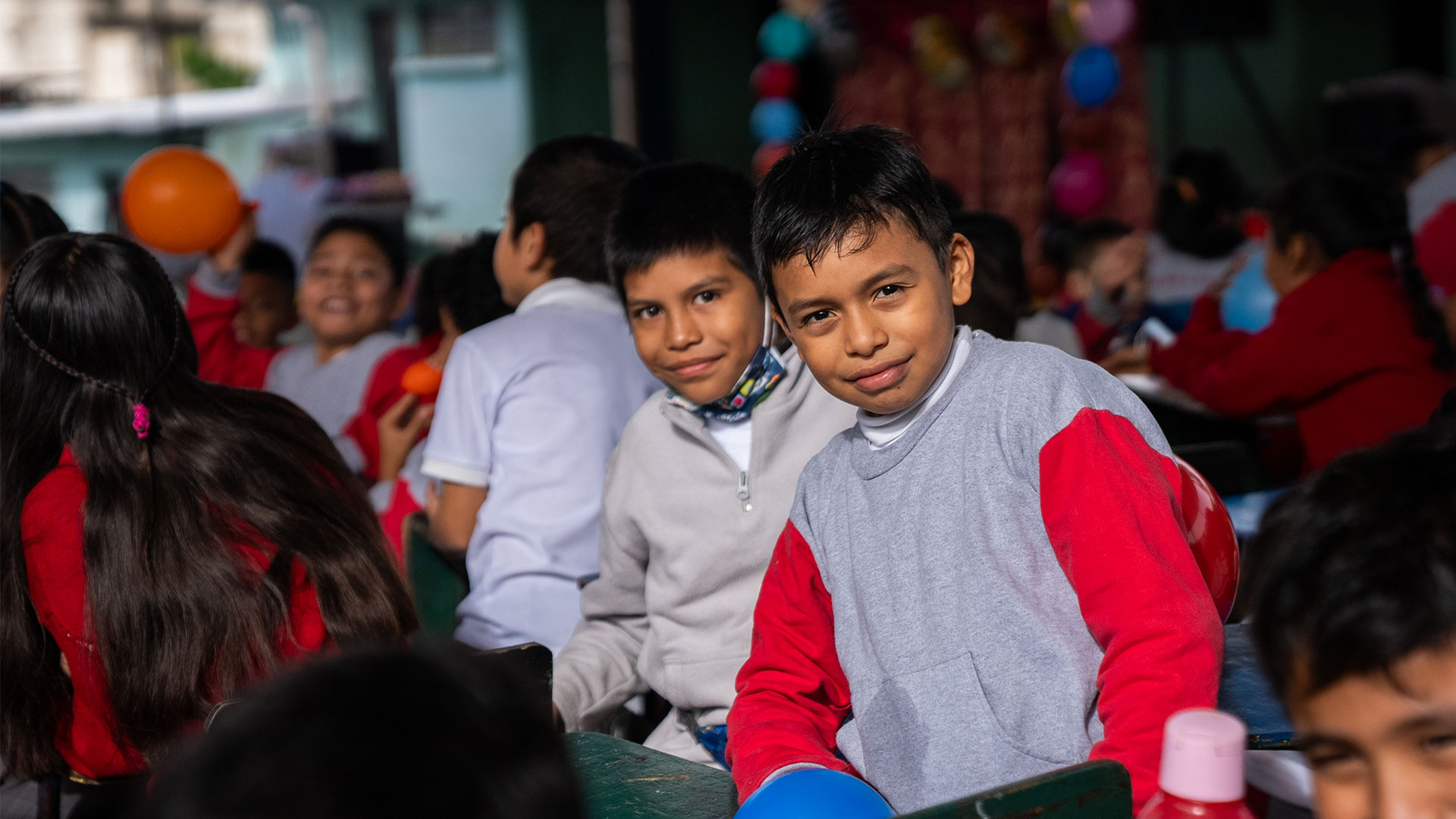Author: James Howard-Smith, 11 August 2023
It’s two hundred and eighteen years since we were first able to put a Bible in someone’s hands thanks to a generous legacy gift.
In centuries since, countless millions around the world will have discovered God’s word and come to faith through people here in England and Wales remembering Bible Society with a gift in their will. Today, legacy gifts accounts for almost a third of donations.
Whenever someone tells us they intend to make a legacy gift, knowing that will change multiple lives, we’re excited to thank them. ‘Every year I try to bring these people together,’ said Howard, who manages Bible Society’s legacy giving. ‘I want to say thank you, but I’m also looking for a way for us to experience together the legacy of the Bible.’
This year Howard gathered his Bible-loving legacy pledgers at a couple of events, one at the John Rylands Library in Manchester and another at Cambridge University Library. Both events were a celebration of the power of Scripture, and an opportunity to hear from experts about the fascinating history of Bible engagement.
At Cambridge, Dr Melonie Schmierer-Lee, a researcher there, talked about the Hebrew manuscripts she studies from the Cairo Genizah, the storeroom of the Ben Ezra Synagogue in Egypt. These included pages copied by the medieval rabbi Samuel ben Jacob, who gave us what we now call the Leningrad Codex, the oldest complete Hebrew Bible (and the basis for the NIV and ESV Old Testaments).
‘It was a true adventure story,’ Howard said. ‘We heard about Agnes and Margaret Lewis, twin sisters from Scotland, who went to Egypt and brought back fragments from the Genizah. They showed them to Solomon Schechter, their “irrepressibly curious rabbinical friend” at Cambridge.’
In Manchester, the group were given a tour of the wonderfully neo-gothic John Rylands Library by Dr Elizabeth Gow, an archivist at the University of Manchester, who showed them a fragment of the Dead Sea Scrolls. Dr Jeremy Penner, who curates the collection that the Scrolls are part of, talked about the amazing significance of these extremely early biblical documents.
‘My eyes were opened,’ Howard said. ‘To see these ancient fragments and to hear the story of how they’ve come to us was just incredible. I loved hearing about the drive of Mrs Enriqueta Rylands, amassing such a special collection of Bibles and commissioning such an amazing building, in memory of her husband, to house them.’
By making a gift in your will, you’ll be giving future generations the opportunity to experience God’s word. Find out more about how your legacy will change lives.
A codex is an early manuscript on parchment bound in leather, the forerunner of the modern book. This is a Codex of the Hebrew Bible, which Christians call the Old Testament. It is the oldest intact edition of the Hebrew Bible in existence. Since 1863 it was kept at St Petersburg in Russia, which was renamed Leningrad in 1924. Since then it has been known as the Leningrad Codex (even though the city has reverted to its historical name of St Petersburg). The text is very important to scholars and has been used as the main source to create the digital edition of the Hebrew Scriptures, which is used by Bible translators worldwide.
A genizah is like a storeroom for synagogues. Jews considered Hebrew to be the language of God, and Hebrew script to be the writing of God, so accordingly texts could not be destroyed, whether religious or secular. So instead, any old documents were kept in a genizah. At Cairo in Egypt, the ancient Jewish community had a synagogue with a genizah at the back, which was basically a space between two walls at the back, which had been used for a thousand years. In 1897, most of this was brought to Cambridge University, and it has proven a treasure trove for scholars giving insights into medieval Jewish cultural and religious life.
Share this:


Resisting gang culture with God’s word

Change a child's life with the Bible